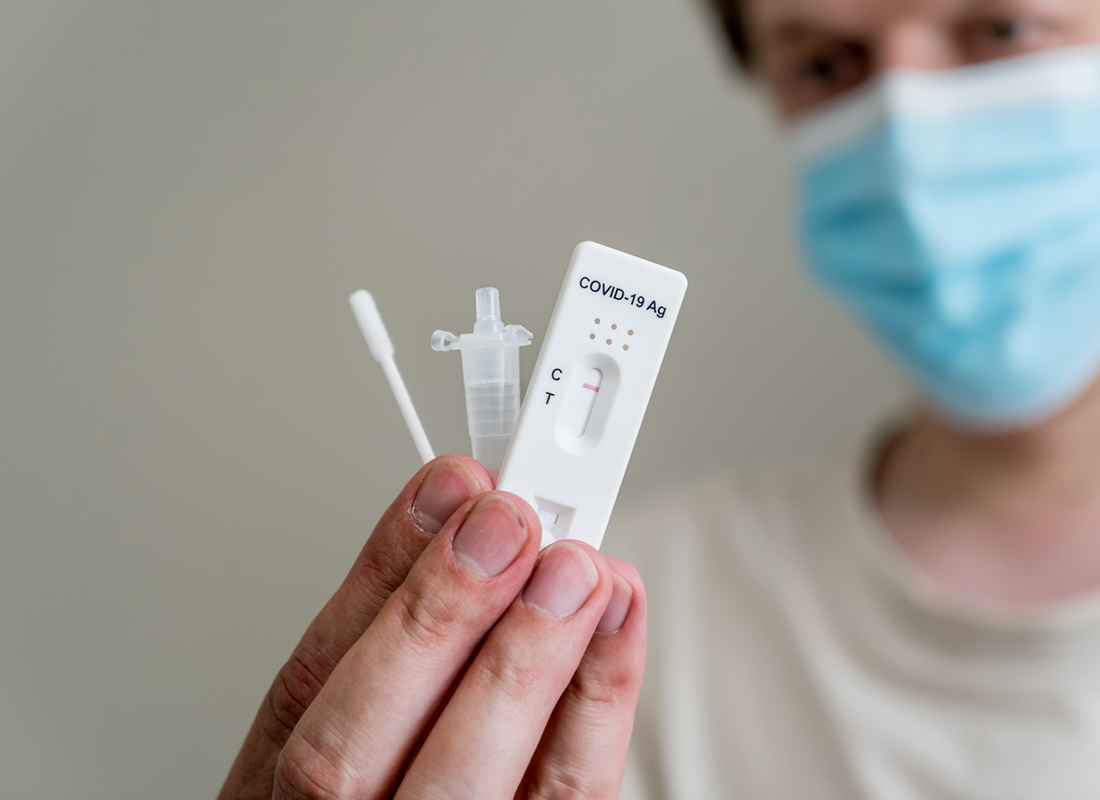Compliance Alert: 8 New Medicare COVID-19 Test Payment Rules Take Effect on May 12
CMS recently issued long-awaited guidance on post-PHE changes to Medicare coverage of SARS-CoV-2 diagnostic tests.

With the COVID-19 public health emergency (PHE) expiring on May 11, at the end of April, the Centers for Medicare & Medicaid Services (CMS) issued long-awaited guidance on the changes to Medicare coverage of SARS-CoV-2 diagnostic tests.1 Here’s a briefing on the eight key Medicare reimbursement changes that took effect on May 12:
1. End of Free Medicare OTC COVID-19 Tests
On April 4, 2022, the US government initiated a program offering up to eight over-the-counter (OTC) COVID-19 tests per month with no out-of-pocket costs for Medicare Part B beneficiaries. The free home tests, which were available in most pharmacies and via online delivery, were available to individuals regardless of the type of health insurance coverage they had.2 Exactly a year to the date later, a group of 18 senators sent a letter asking U.S. Department of Health and Human Services (HHS) Secretary Xavier Becerra to keep free OTC COVID-19 testing in place after the PHE ends.3
Free at-home tests have been instrumental in containing the spread of COVID-19 and protecting older Americans, the letter states. “Ending Medicare coverage for at-home COVID-19 tests could undo much of this progress.” Without such coverage, many seniors won’t “be able to afford to pay out-of-pocket for these critical tests, and they simply won’t test.”
Regrettably, the senators’ pleas seem to have fallen on deaf ears. As many had feared, the policy changes published by CMS on April 28 indicated that Medicare would no longer provide blanket coverage for the cost of OTC tests once the PHE expires.
2. Free Medicaid and CHIP OTC Tests to Continue
The cutoff isn’t as broad as it could have been. Thus, CMS notes that beneficiaries with Medicaid or Children’s Health Insurance Program (CHIP) coverage will continue to have access to free COVID-19 OTC tests through September 30, 2024. After that date, it will be up to the states to decide on their own COVID-19 testing coverage rules.
CMS also notes that beneficiaries enrolled in a Medicare Advantage (MA) plan may have more access to OTC tests depending on their benefits. The agency advises MA plan members to check with their plan.1
Private Payer Coverage of COVID-19 Tests After the PHE
3. Continued Coverage of Lab COVID-19 Tests Ordered by Providers
While free home tests are over, CMS stated that Medicare will continue to reimburse for lab-based PCR and antigen SARS-CoV-2 tests that are ordered by a healthcare provider for the beneficiary (such as drive-through PCR and antigen testing or testing in a provider’s office), without charging copays or other out-of-pocket costs.
4. End of Increased Medicare Payment for High Throughput COVID-19 Tests
In addition to the new OTC payment changes, CMS issued revised guidelines indicating that it’s pulling back some of the regulatory “flexibilities” extended to labs during the PHE regarding COVID-19 test billing and reimbursement. Among other things, CMS is ending increased Medicare payments for labs that provide high throughput COVID-19 testing billed under Healthcare Common Procedure Coding System (HCPCS) codes U0003, U0004, and U0005. The new HCPCS codes are being withdrawn, and high throughput COVID-19 tests with dates of service on or after May 12, 2023 will once more be payable at the Medicare Part B Clinical Laboratory Fee Schedule (CLFS) amount.4
5. End of Specimen Collection Payments from Patient’s Home for COVID-19 Testing
During the PHE, Medicare paid a specimen collection fee of $23.46 to labs that sent trained technicians to collect a sample from a homebound beneficiary or non-hospital inpatient for COVID-19 diagnostic testing. The program paid $25.46 for collections from individuals in a non-covered skilled nursing facility stay or whose samples were collected by a lab on behalf of a home health agency. These payment amounts, which were billable under HCPCS codes G2023 and G2024, are no longer payable for dates of service on or after May 12, 2023.4
6. Physician or NP Order Now Required for First COVID-19 Tests
CMS normally doesn’t pay for tests performed without the order of a physician or non-physician practitioner (NP). But when the PHE began, CMS relaxed the rules, allowing for coverage of a beneficiary’s first COVID-19 tests without an order while maintaining the physician or NP order requirements for subsequent tests. With the PHE now ended, all COVID-19 and related testing performed by a lab must be ordered by a physician or NP in accordance with pre-PHE rules.4
7. Medicare Coverage of COVID-19 Serology Testing No Longer Automatic
For as long as the PHE remained in effect, FDA-authorized COVID-19 antibody (serology) was recognized as a Medicare covered diagnostic test for patients with known or suspected current or prior COVID-19 infection, to the extent that the test results had the potential to alter the healthcare decisions made by the patient and provider. Effective May 12, Medicare coverage of such testing is left to the discretion of the Medicare Administrative Contractor.4
8. End of CARES Act Price Transparency for COVID-19 Testing
Not all post-PHE policy changes are negative for labs. As part of the Coronavirus Aid, Relief, and Economic Security Act (CARES Act), CMS issued an October 28, 2020 Interim Final Rule requiring providers of COVID-19 tests to publish the cash price they charge for such tests on their website—or, if they don’t have a website, in writing within two days of a request for price information.5 Failure to comply could have resulted in civil monetary penalties of up to $300 per day.6 The CARES Act price transparency rules officially ended on May 12, CMS states, although labs may still be subject to price transparency requirements under other laws.6
References:
- https://www.cms.gov/files/document/covid-over-counter-test-coverage.pdf
- https://www.cms.gov/covidotctestsprovider
- https://www.aging.senate.gov/imo/media/doc/letter_to_hhs_on_continued_at-home_covid-19_test_coverage.pdf
- https://www.cms.gov/files/document/laboratories-cms-flexibilities-fight-covid-19.pdf
- https://www.cms.gov/newsroom/fact-sheets/fourth-covid-19-interim-final-rule-comment-period-ifc-4
- https://www.ecfr.gov/current/title-45/subtitle-A/subchapter-E/part-182
Subscribe to view Essential
Start a Free Trial for immediate access to this article